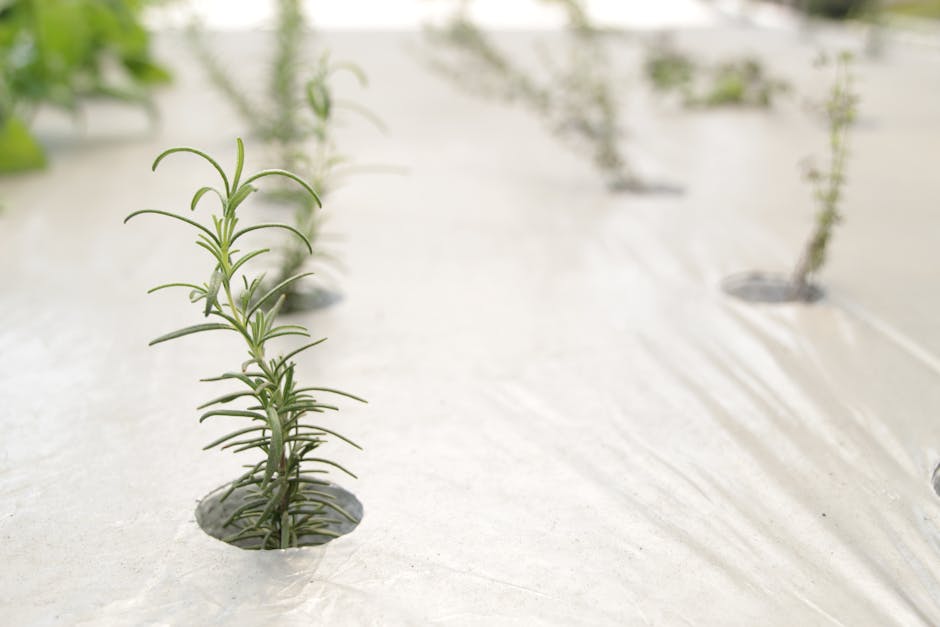Pros and Cons of Using Pine Shavings in Your Garden

Content Outline
- Introduction
- Can I Put Pine Shavings in My Garden?
- Benefits of Using Pine Shavings
- Considerations Before Adding Pine Shavings
Introduction
When it comes to gardening, one common question that often arises is, "Can I put pine shavings in my garden?" This query stems from the desire to make informed choices about the materials used in gardening practices. In this article, we will delve into the pros and cons of using pine shavings in your garden to help you make an informed decision.
Can I Put Pine Shavings in My Garden?
When it comes to using pine shavings in your garden, there are a few factors to consider before incorporating them into your soil. Let's delve into the pros and cons of using pine shavings in your gardening practices.
Benefits of Using Pine Shavings in Your Garden:
- **Improving Soil Structure:** Pine shavings can help loosen compacted soil, allowing better root growth and water absorption.
- **Weed Suppression:** The use of pine shavings as mulch can help suppress weed growth in your garden.
- **Moisture Retention:** Pine shavings can aid in retaining moisture in the soil, which is beneficial for plant growth.
Considerations When Using Pine Shavings:
- **Acidic Nature:** Pine shavings are acidic, which can be beneficial for acid-loving plants but may not be suitable for all plant varieties. Consider the pH requirements of your plants before using pine shavings.
- **Decomposition Rate:** Pine shavings decompose slowly, which can be advantageous for long-term soil improvement but may require additional nitrogen supplementation in the short term.
- **Potential Harm to Pets:** Pine shavings used in gardening should be free from chemicals that can be harmful to pets or wildlife.
In conclusion, while using pine shavings in your garden can offer several benefits such as improving soil structure and suppressing weeds, it is essential to consider the acidic nature of pine shavings and their decomposition rate. If you decide to incorporate pine shavings into your gardening practices, ensure that you monitor your soil pH and provide any necessary nitrogen supplementation.
For more information on using pine shavings in your garden, check out this resource.
Benefits of Using Pine Shavings
- Pine shavings are a versatile and cost-effective option for garden mulching.
- They can help to retain moisture in the soil, which is beneficial for plant growth and can i put pine shavings in my garden? source.
- Pine shavings also act as a natural weed barrier, reducing the need for frequent weeding.
- They break down slowly, providing long-lasting organic matter to the soil.
- Furthermore, pine shavings can enhance soil aeration and improve drainage.
According to a study by ScienceDirect, using pine shavings in garden beds can increase soil fertility over time.
Considerations Before Adding Pine Shavings
- Before incorporating pine shavings into your garden, it is crucial to understand the potential impact they can have on your plants and soil health.
- One key consideration is the acidity of pine shavings. Pine shavings are known to be acidic, which can alter the pH levels of the soil. According to Gardening Know How, pine shavings can lower the pH of soil, making it more acidic. This can be beneficial for acid-loving plants but may not be suitable for all types of plants.
- Another important factor to consider is the potential allelopathic effects of pine shavings. According to University of Minnesota Extension, certain trees, including pines, release chemicals that can inhibit the growth of other plants. This could have a negative impact on the overall health of your garden.
- Furthermore, pine shavings can be beneficial in terms of moisture retention and weed suppression. Research from University of Georgia Extension shows that pine shavings can help retain moisture in the soil and reduce weed growth, providing a natural and cost-effective solution for gardeners.
Considering these factors, it is essential to weigh the pros and cons before deciding to add pine shavings to your garden. While they can offer benefits such as moisture retention and weed suppression, their acidic nature and allelopathic effects should be taken into account. To answer the question "can I put pine shavings in my garden," it ultimately depends on the specific needs of your plants and your gardening goals.
Related Articles

Optimizing Soaker Hose Usage: Determining the Ideal Running Time for Your Garden
Discover the key factors to consider when determining how long a soaker hose should run in your garden. Learn how to adjust the duration for optimal plant health and growth.

Efficient Garden Watering with a Hose: Tips and Best Practices
Learn how to water your garden effectively using a hose. Discover the optimal watering duration and factors to consider for healthy plants.

Is Triazicide Safe for Vegetables? A Comprehensive Guide
Explore the safety of using Triazicide on vegetables. Learn about the effectiveness of gamma-cyhalothrin in pest control and the tradeoffs to consider. Find out if Triazicide is safe for your crops.

The Ultimate Guide to Burying Garden Hoses for a Tidy Outdoor Space
Discover the benefits of burying garden hoses and learn the steps to achieve a well-organized garden. Protect your hose from damage, enhance safety, and improve aesthetics!

Should You Detassel Your Corn? Factors to Consider
Explore the pros and cons of detasseling corn to make an informed decision. Learn about the impact on yield, pest control, labor, and corn quality.

Effective Strategies to Keep Chickens Away from Your Garden
Discover proven methods to protect your garden from chickens while ensuring the well-being of your flock. Learn about physical barriers, natural deterrents, scare tactics, and more!